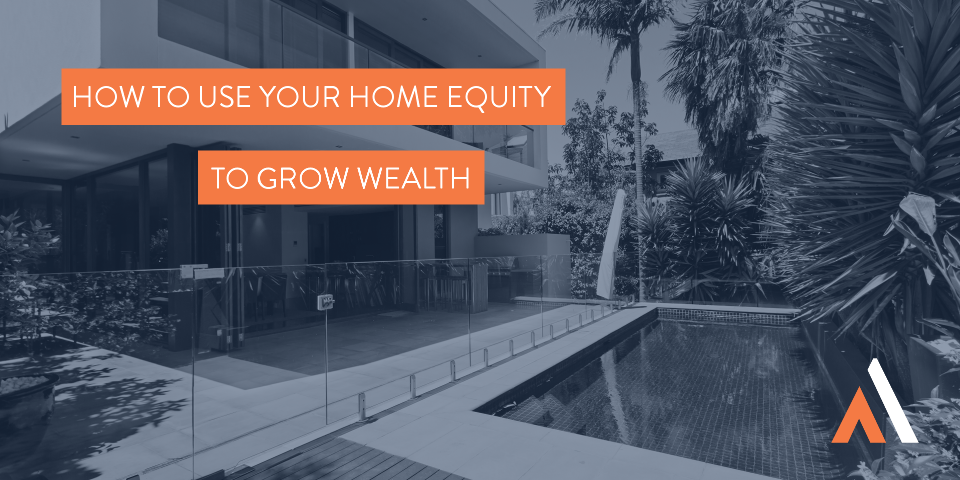
How to use your home equity to grow wealth
March 31, 2018 - Blog
Remember in the “old days” when everyone spent decades paying off their home and then retired on the pension and then, well, departed this mortal coil?
It might be surprising to some that such a philosophy is still very much in the play for baby boomers and, unfortunately, some younger generations, too.
Of course, there is a much better way, which can not only improve your financial position but also ensure you don’t end up trying to survive on the pension in your twilight years.
Home is where the wealth is
Let’s consider a Generation X couple who bought in Sydney when they were in their late-20s.
They’re now in their mid-40s and thanks to two strong market cycles, their home is probably worth about $1.5 million or even more.
The thing is, they’re been diligently paying off their original mortgage over the past two decades so the debt on their home is now only $250,000.
So that means they have about $1.25 million in equity in their property that is not really working for them in any way – apart from looking good on paper – because they have no intention of selling anytime soon.
Sophisticated property investors understand that equity can be their best friend and they regularly access it to grow their portfolios.
Our Sydney-based couple, who probably have one or two children as well as being busy professionals, not only have equity money at their disposal, they are also the type of borrowers that lenders find attractive.
That’s because they have a strong, stable history of paying off their home loan, high incomes and staying in one spot, too.
Equity reality
So, lenders are likely to look favourably on their application to extract equity, but before they submit the paperwork they need to understand how much they can withdraw as well as which locations might work best for their budget and their financial hopes and dreams.
You see extracting equity involves a calculation that many novice investors get wrong.
In our example, the couple has $1.25 million in equity but that doesn’t mean they can use all of those funds.
The maximum they can probably extract is up to 80 percent because of the current tighter lending restrictions which generally require the retention for at least 20 percent of the equity in the property.
In other words, accessible equity is the maximum loan available less outstanding debt or…
Property Value = $1.5 million
Maximum LVR = 80%
Maximum Loan Available = $1.2 million
Outstanding Debt = $250,000
Accessible Equity = $950,000
So that means that they could potentially use up to $950,000 for the deposit and purchase costs for a number of investment properties.
However, because this is their first investment, I would recommend they start with one property first – you never want to bite off more property than you can chew in the beginning!
Subject to getting help from an investment-savvy mortgage broker to ascertain their borrowing capacity, they could extract about $350,000 of equity. This would allow them to buy a great quality, two-bedroom apartment on the Lower North Shore of Sydney, perhaps in Cremorne, Waverton, or even Neutral Bay.
The money they have extracted will be enough for a 20 percent deposit as well as other buying costs such as stamp duty and legals.
Their outstanding debt on their family home would now be $600,000 but they own two properties with a combined value of $2.5 million or more.
In another year, if they wanted to keep growing their portfolio, they could potentially buy something else – and so on and so forth.
Financial nest-egg
Given they are investing in blue-chip locations, the portfolio’s potential capital growth in the years ahead will ultimately mean that when they come to retire – which they could possibly do much earlier than 65 – they could have a significant financial nest-egg to live off.
Conversely if they just continued to pay off their home, in 20 or so years, they might have a nice house that’s paid off and a roof over their heads – but one that’s too big for their purposes since the children have long since flown the coop – and very little cash flow to supplement their meagre pension or insufficient super payments.
I know which financial situation I’d rather be in.
If you would like to find out how you can release the equity in your home to buy an investment property to grow your wealth, please get in touch with us below:


